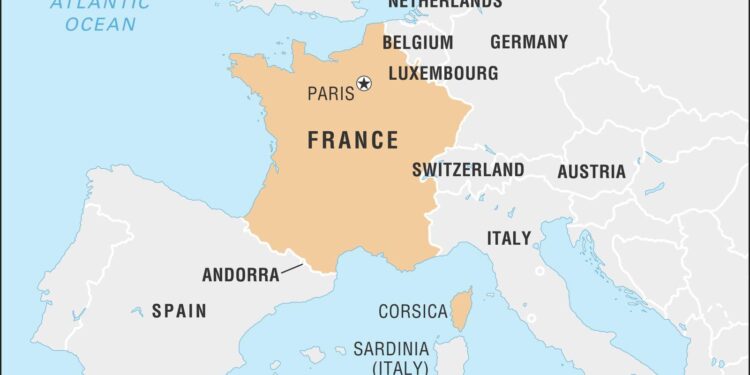France’s government has announced plans to reduce the number of public holidays in an effort to boost economic productivity. However, analysts and labor representatives warn that this move may not deliver the expected economic benefits, raising questions about its potential impact on both workers and businesses. Reuters reports that while the initiative aims to align France’s working calendar more closely with other advanced economies, experts remain skeptical about its effectiveness in addressing deeper structural challenges facing the country’s economy.
France’s Proposal to Reduce Public Holidays Faces Economic and Social Scrutiny
France’s ambitious plan to reduce the number of public holidays has sparked intense debate among economists, labor unions, and social commentators. Proponents argue that fewer holidays could increase productivity and bolster economic growth by encouraging more consistent workforce attendance. However, critics warn that the proposal overlooks the complex socio-cultural value embedded in these traditional breaks. Public holidays are seen not merely as days off but as critical moments for family bonding, cultural expression, and mental health recovery, which many believe contributes to long-term productivity in less direct but vital ways.
Key concerns raised include:
- Potential backlash from workers’ unions, who view the move as an erosion of workers’ rights.
- The unclear impact on consumer spending, which often spikes during holiday periods.
- Risk of increased workplace stress and burnout without adequate downtime.
Economic analysts caution that the relationship between public holidays and economic performance is not linear. The table below highlights a comparative overview of countries with fewer holidays and their corresponding productivity levels, illustrating that less time off does not necessarily equate to higher economic output.
| Country | Public Holidays (days) | GDP Growth (%) | Average Weekly Work Hours |
|---|---|---|---|
| France | 11 | 1.7 | 35 |
| United States | 10 | 2.3 | 40 |
| Germany | 9 | 1.8 | 34 |
| Japan | 16 | 1.0 | 40 |
Experts Question Effectiveness of Holiday Cuts in Boosting Productivity
Economists and labor experts are increasingly skeptical about the French government’s proposal to reduce the number of public holidays as a strategy to enhance national productivity. According to several studies, the correlation between fewer holidays and economic growth is far from straightforward. Many argue that reducing rest days may adversely affect worker morale and overall efficiency, potentially offsetting any gains made through extended work hours.
- Productivity Gains: Historical data shows mixed results on whether cutting holidays directly boosts output.
- Worker Well-being: Frequent breaks and holidays play a vital role in mental health and creativity.
- Economic Impact: Consumer spending during festive periods often stimulates local economies.
| Country | Public Holidays per Year | Average Productivity Index |
|---|---|---|
| France | 11 | 105 |
| Germany | 9 | 108 |
| Japan | 16 | 102 |
| USA | 10 | 110 |
Experts warn that simply slashing holidays overlooks deeper systemic issues such as workplace culture, automation, and investment in skills development. As one labor economist noted, “Sustainable productivity gains require strategic changes beyond calendar adjustments.” Meanwhile, unions have voiced strong resistance, emphasizing the importance of preserving worker rights and the cultural value of holidays in French society.
Alternative Strategies Recommended to Stimulate Sustainable Economic Growth
While reducing public holidays may appear as a straightforward method to boost productivity, experts suggest that more nuanced approaches are essential to foster sustainable economic growth in France. Emphasizing innovation-driven investment, enhancing workforce skills through comprehensive education reforms, and promoting green technologies are strategies gaining traction among economists. These measures aim to create long-term value rather than short-term gains by ensuring the economy adapts to global shifts and environmental challenges.
Policy makers are also encouraged to focus on strengthening small and medium-sized enterprises (SMEs), which are pivotal to job creation and economic resilience. Incentivizing entrepreneurship, easing access to financing, and streamlining regulatory frameworks can empower SMEs to thrive in competitive markets. Below is a comparison of potential alternative strategies and their projected impacts:
| Strategy | Projected Impact | Implementation Complexity |
|---|---|---|
| Innovation Investment | High productivity & competitiveness | Medium |
| Education & Skills Training | Long-term workforce adaptability | High |
| SME Support | Job creation & economic diversification | Low to Medium |
| Green Technology Promotion | Sustainable growth & environmental benefits | Medium |
To Conclude
As France explores reducing the number of public holidays in an effort to boost economic productivity, experts remain divided on the potential benefits of such measures. While proponents argue that fewer holidays could increase working days and improve output, critics caution that the move may have limited impact on complex economic challenges. As the debate continues, the outcome will hinge on how these changes are implemented and received by businesses and workers alike.















